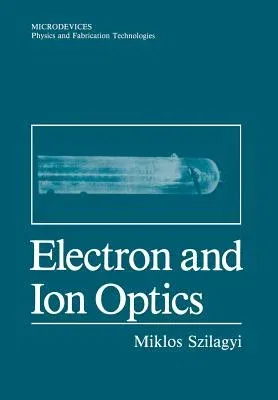Miklos Szilagyi
(Author)Electron and Ion Optics (Softcover Reprint of the Original 1st 1988)Paperback - Softcover Reprint of the Original 1st 1988, 10 October 2011

Qty
1
Turbo
Ships in 2 - 3 days
In Stock
Free Delivery
Cash on Delivery
15 Days
Free Returns
Secure Checkout
Part of Series
Microdevices
Print Length
556 pages
Language
English
Publisher
Springer
Date Published
10 Oct 2011
ISBN-10
1461282470
ISBN-13
9781461282471
Description
Product Details
Author:
Book Edition:
Softcover Reprint of the Original 1st 1988
Book Format:
Paperback
Country of Origin:
NL
Date Published:
10 October 2011
Dimensions:
24.41 x
16.99 x
2.9 cm
ISBN-10:
1461282470
ISBN-13:
9781461282471
Language:
English
Location:
New York, NY
Pages:
556
Publisher:
Series:
Weight:
879.97 gm

